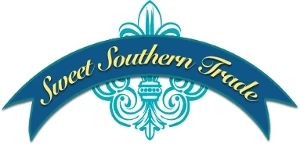Two terms that often come up in the world of entrepreneurship are “Private Label” and “White Label.” While they may sound similar, the differences between the two could impact your decision-making process. So, let’s dive into the fascinating world of Private Label and White Label to uncover their nuances and help you make an informed choice for your business!
Private Label
Private Label products have been gaining popularity in recent years and for good reason. But what exactly is Private Label? Essentially, it refers to a practice where a company manufactures a product and another company sells it under their own brand name. In other words, the manufacturer creates the product while allowing the retailer to label it.
One of the main advantages of Private Label is that it gives retailers more control over their brand identity. They can customize everything from packaging design to product specifications, creating a unique offering for their target market. This level of customization allows retailers to differentiate themselves from competitors and build customer loyalty.
Another benefit of Private Labels is cost-effectiveness. By eliminating the need for extensive research and development, companies can save both time and money by leveraging existing products manufactured by experts in their field. Additionally, because they are not creating an entirely new product from scratch, retailers often enjoy higher profit margins with Private Label offerings.
Furthermore, private labeling offers flexibility when it comes to pricing strategies. Retailers can set prices based on market demands or positioning within their niche without being bound by fixed pricing structures dictated by manufacturers.
Private Label provides businesses with opportunities for branding control, cost savings through leveraging expertise in manufacturing capabilities, and flexibility in pricing strategies — all key factors contributing to business growth and success.
Another advantage is you can provide the manufacturer with your exact specs, and they will make your products for you. Take, for instance, you have an excellent gummy recipe. Your manufacturer can make your gummies to your exact recipe and even use your chosen ingredients.
White Label
White Label products have become increasingly popular in recent years due to their versatility and potential for customization. But what exactly is White Label, and how does it differ from Private Label?
In simple terms, White Label refers to a product or service that is created by one company but marketed and sold under another company’s brand. Essentially, it allows businesses to rebrand an existing product as their own without the need for extensive development or manufacturing.
One of the main advantages of White Label is that it provides companies with a ready-made solution that can be quickly brought to market. This can be particularly beneficial for startups or small businesses looking to offer a range of products without investing heavily in research and development.
Furthermore, White Label products often come with pre-packaged marketing materials such as labels, packaging designs, and even promotional content. This not only saves time but also ensures consistency across different channels.
Another advantage of White Label is its flexibility. Companies can choose from various pre-existing products or services that align with their target market and business goals. They can then add their unique branding elements to create a cohesive brand identity.
However, despite its many benefits, there are some limitations associated with White Labeling. One major concern is the lack of control over quality assurance and customer support since these aspects are typically handled by the original manufacturer or provider.
Additionally, competition can be fierce in industries where multiple companies offer similar white-labeled products under different brands. Standing out from the crowd may require additional marketing efforts instead of simply rebranding the product.
While both Private Label and White Label offer opportunities for businesses seeking custom-branded solutions, they differ in certain key aspects, such as ownership and level of control over production processes. Choosing between them depends on factors like your business goals, available resources, and desired level of involvement in product development.
Whether you opt for Private Label or White Label will depend on your specific needs and strategies.
For example, if you want to sell Delta 8 Gummies in your shop, you can rebrand our gummies with your logo and custom label. This saves you a lot of money.
The Difference Between the Two
When it comes to private label and white label products, there are some key differences that set them apart. The private label refers to a product that is manufactured by one company but sold under another company’s brand name. This means that the manufacturer creates the product specifically for the retailer, who then markets and sells it as their own.
On the other hand, white label products are generic items that a manufacturer produces without any branding or labels. These products can be purchased by different companies and branded with their own logos and packaging before being sold to consumers.
One significant difference between private label and white label is exclusivity. With private label, a retailer has exclusive rights to sell a specific product under their brand name. White label products, however, can be purchased by multiple companies who can all market and sell them under their own brands.
Another difference lies in customization. Private label allows retailers to have more control over the design, features, and specifications of the product they offer. They can work closely with manufacturers to create a unique offering tailored to their target market. White-label options are generally pre-designed and ready for branding without much room for customization.
Pricing is also affected by these differences. Private-label products tend to have higher profit margins since they are exclusive offerings created specifically for one retailer. On the other hand, white-label products often come at lower price points due to mass production capabilities.
So which option should you choose? It depends on your business goals and resources. Private labeling might be ideal if you want greater control over your product line or an exclusive offering explicitly tailored to your brand image.
Conversely, white labeling could be a better fit if you’re looking for cost-effective solutions with less time spent on development or manufacturing processes while still maintaining flexibility in branding options.
Deciding between private label vs white label requires careful consideration of factors such as brand identity, budget constraints, and target market. It’s essential to weigh the pros and cons of each.
Which One Should You Choose?
Now that we’ve explored the differences between private label and white label, you may be wondering which option is right for your business. The truth is, there’s no one-size-fits-all answer to this question. It ultimately depends on your specific goals, resources, and preferences.
Private labeling might be the way to go if you’re a small business looking to create a unique brand identity and establish customer loyalty. With private label products, you have more control over your products’ branding and marketing aspects.
That allows you to differentiate yourself from competitors and build a distinct reputation in the market.
On the other hand, white labeling can be an attractive option if you’re looking for a quicker route to market or don’t have the resources to develop your own products from scratch. By leveraging existing products and packaging under your own brand name, you can save time and money while still offering quality goods to your customers.
When making this decision, it’s essential to consider factors such as cost implications, production capabilities, target audience preferences,
and long-term growth potential.
It can also be helpful to conduct market research and analyze industry trends to see which strategy aligns best with current consumer demands.
Ultimately, choosing between private and white labels comes down to what makes sense for YOUR business. So take time to evaluate all angles, carefully weighing the pros and cons.
In doing so, you’ll make an informed decision that sets your business up for success in today’s competitive marketplace.
How to Decide
When it comes to deciding between private label and white label products, there are a few key factors to consider. First and foremost, you need to assess your goals and objectives for the product. Are you looking for complete control over the branding and marketing? Or do you prefer a ready-made solution that allows for faster time-to-market?
Next, consider your resources. Private labeling typically requires more investment in terms of time, money, and expertise. You’ll need to develop your own unique brand identity, packaging design, and marketing materials.
On the other hand, white labeling offers a pre-existing product that can be customized with your branding without extensive development or manufacturing.
Another important consideration is market demand. Research your target audience’s preferences and purchasing behaviors to determine which option would resonate better with them. Additionally, analyze competitors in your industry who offer private label or white label products to see what has been successful.
Think about scalability. Do you plan on expanding your product line in the future? Private labeling may provide more flexibility as you have complete control over product development and innovation.
Choosing between private labels and white labels ultimately depends on what aligns best with your business goals, available resources,and target market preferences.
Conclusion
Both private label and white label offer unique opportunities for businesses to expand their product offerings and increase their revenue. Private label allows companies to create and market their own branded products, giving them full control over the entire process from development to distribution.
On the other hand, white label provides a ready-made solution that allows businesses to quickly enter new markets without investing heavily in product development.
When deciding between private label and white label, it’s essential to consider your specific business goals and resources. If you have the capacity to invest in product development and marketing efforts, private labeling may be the best option for you. This can give your brand a distinct identity in the market and potentially higher profit margins.
However, white labeling offers a more convenient solution if you’re looking for a faster entry into new markets or lack the resources for extensive product development. You can leverage existing products that have proven successful in the market while focusing on branding and distribution.
Choosing between private label and white label depends on your business objectives, budget constraints, time frame, marketing capabilities, and target audience. Take these factors into consideration when making your decision.
Remember that quality should always be a top priority regardless of which option you choose – whether it’s private or white labeling. Providing exceptional products will help build customer loyalty and drive long-term success for your business.
So weigh your options carefully before deciding but also remember that flexibility is key! Adaptability is crucial in today’s fast-paced market environment. Keep an eye on industry trends, as they may influence your choice down the line.
Whichever path you take – private or white – ensure it aligns with your overall business strategy to achieve sustained growth now…and well into the future.
Launching a product or starting a business is an exciting endeavor, but it can also be overwhelming when faced with various options and strategies. The folks at Sweet Southern Trading are experts in the vape and hemp industry in helping our wholesale clients select the best option.
Also see Make More Money this Year with Wholesale Headshop Products from Sweet Southern Trading
Give us a call or use the contact form below so we can discuss it! Start making more this year.
[erforms id=”38080″]







